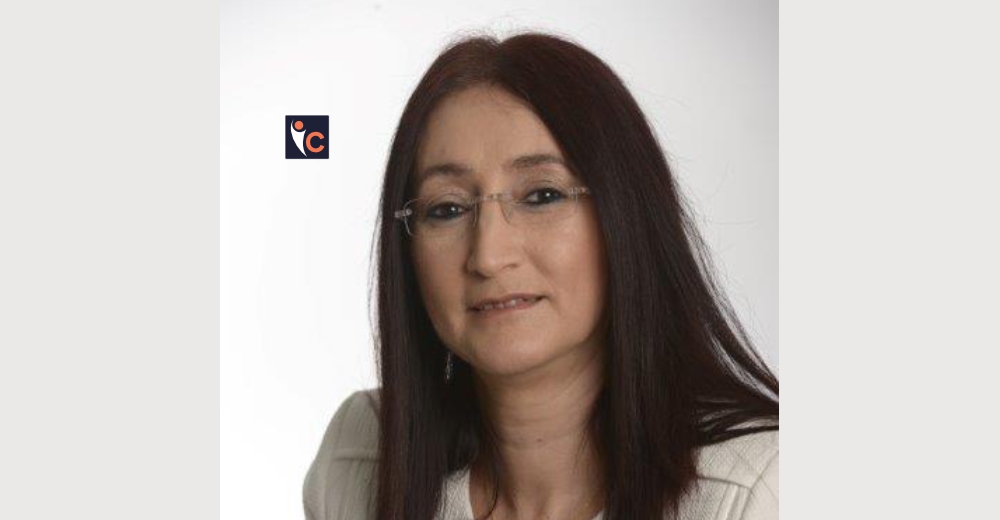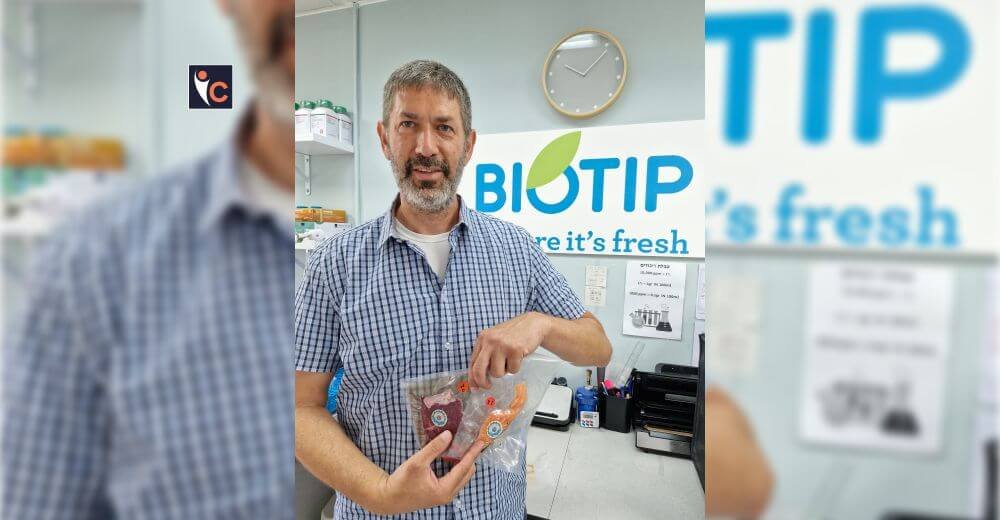HealthCare, a field demanding exceptional leadership and tireless commitment, finds a formidable figure in Anat Cohen-Dayag. A leader of tenacity and vision, Anat epitomizes the transformative potential within the industry. Her journey, from the Head of R&D to her current role as President and CEO of Compugen, serves as evidence of her dedication to advancing healthcare through predictive computational discovery incorporating artificial intelligence and machine learning.
Compugen, initially a software service provider, has undergone a remarkable transformation under Anat’s leadership. Now a clinical-stage biotech powerhouse, it utilizes predictive computational technologies to identify novel drug targets and pathways for cancer immunotherapy treatments.
Our recent interview with Anat unveils her remarkable journey and sheds light on the pivotal role she played in reshaping Compugen.
Briefly introduce yourself highlighting your professional tenure in the healthcare industry. What inspired you to pursue a career in life sciences and how did you get started in the field?
I am passionate about science and wanted to work in an environment where cutting-edge science could be applied to make a difference to patients. I qualified with a Ph.D. from the Weizmann Institute of Science and started my career in the lab before transitioning to work in Research at Compugen. In 8 years, I advanced from research to the President and CEO of the Company, joined the Board of Directors and led the transformation of the company from a computational discovery service provider to a clinical stage drug discovery and development company pioneering in computational drug discovery in the field of cancer immunotherapy.
Under my leadership Compugen has:
A clinical stage therapeutics pipeline with 2 fully owned clinical staged drug candidates, and a third one derived from a Compugen drug candidate being developed by our partner AstraZeneca. A pre-clinical therapeutics pipeline, including a pre-IND stage drug candidate licensed to Gilead and which we hope will go into the clinic this year. And we are advancing an earlier stage pipeline with additional new potential first-in-class programs.
Tell us something about Compugen. What was the vision and mission behind the establishment of the organization?
Compugen is a clinical-stage cancer immunotherapy company and a pioneer in computational target discovery. Our vision at Compugen is to transform patient lives by developing first-in-class therapeutics based on Compugen’s computational target discovery platform and I am proud to have taken the company from computational prediction to treating cancer patients in clinical studies. It is exciting to think that people are benefiting from participating in our studies.
We are a global company, with headquarters in Israel and presence in the United States, Europe, and Singapore. All our clinical trials are being conducted in multiples sites in leading medical centers across the United States and most of our preclinical activities are being done by specialized service providers in Europe and the United States. Compugen is a publicly traded company on Nasdaq and the Tel Aviv stock exchange.
We were the first to discover a novel immuno-oncology checkpoint target called TIGIT concurrently with Roche/Genentech. We were also the first to discover a new immuno-oncology checkpoint target, PVRIG, and we think blocking both targets will be synergistic in stimulating the immune system to fight cancer and may play an important role in treating patients not responding to current cancer therapies. We are currently running two proof-of-concept studies in metastatic microsatellite stable colorectal cancer and platinum resistant ovarian cancer in the United States with our triple combination of COM701 (anti-PVRIG), COM902 (anti-TIGIT) with the anti PD-1 pembrolizumab. Our partner AstraZeneca is rapidly progressing rilvegostomig, their PD-1/TIGIT bi-specific of which the TIGIT component is derived from our COM902, in multiple clinical trials, including a Phase 3 trial in biliary tract cancer.
In addition to these clinical stage programs, we have most recently discovered a novel antibody approach to harness cytokine biology as a differentiated way to address the challenge of resistance to existing immunotherapies, leading to the development of our COM503 first-in-class antibody. We were very excited to sign an exclusive licencing agreement for COM503 with Gilead in December 2023, total deal worth up to $848 million plus royalties on future product sales.
What are some of the biggest challenges that the biotech industry is facing in Israel, and how do you think they can be addressed?
Despite the atrocious inhumane terrorist attack on Israel, which stands against all our values, we continue to stay focused and make progress on our goals at Compugen. The perseverance needed to prevail over these adversities is exactly what makes us more determined and helps us to successfully innovate and bring new breakthrough treatments to patients.
Access to capital in the past few years has been a challenge for the wider biotech industry because of a stressed global economy, with rising interest rates to combat inflation post COVID. Amid economic uncertainty, investors shy away from non-revenue generating companies, which include the majority of small cap biotech, also in Israel.
What do you consider to be your greatest achievement as a healthcare leader?
I think it would have to lead the transformation of Compugen from a computational discovery service provider to a clinical stage drug discovery and development company pioneering computational drug discovery in the field of cancer.
As a result of this transformation, today, cancer patients in clinical trials have access to 3 different clinical candidates.
How do you balance the needs of patients, healthcare providers, and other stakeholders in your decision-making process?
At the end of the day what we do is all about the patient. If patients do better because of the work that we do, we will be creating value for the whole ecosystem including shareholder value. Creating shareholder value is critical, as without our shareholders we cannot invest in innovation. In terms of what influences our decision making, our focus is on discovering novel drug targets and differentiated first-in-class medicines, taking into consideration the level of unmet medical need and the competition, so that we can transform the lives of patients.
What do you think are the most important qualities for a healthcare leader to possess, and how do you cultivate those qualities in yourself and your team?
For me, the success of what we do is driven by our people, so my number 1 focus is on our people – ensure they are engaged with the company’s goals, motivated and performing.
Providing a clear vision and strategy is incredibly important. Empowering the teams who are the experts to make bold decisions, not to be afraid to fail, and to deliver.
What advice would you give to someone who is interested in pursuing a career in biotech leadership?
Biotech is an incredible industry to be involved in, one can impact patients’ lives, while being challenged and continuously learning.
I always recommend following your passion, if you have passion for something, you will enjoy whatever you do and as a result the people you lead will also. You should never shy away from reaching out to leaders in our industry to hear their stories, having sponsors and mentors is always helpful to getting to where you want to be.
How do you see biotech evolving in Israel in the next 5-10 years, and what role do you see yourself playing in that evolution?
Israel is recognized as a hot bed for innovation. Israel established numerous universities and research institutions, including the Weizmann Institute of Science, which is known for both biological and computer science and cultivates a culture of entrepreneurship and innovation. However, even though Israel is known for its cutting-edge science and innovation, most of the innovation is acquired in early stages and is not being developed in Israel. The presence of big pharma would help to support a thriving biotech industry in terms of drug development expertise, talent and leadership and financial support via investments and collaborations.
I volunteer at a health network called 8400, made up of leaders from Israel’s biomedical industry, hospitals, academia, investors, and government. Our mission is to work together to build a biotech ecosystem in Israel.
I am also highly committed to mentorship of new CEOs and as part of it I also volunteer at an organization called, We@HealthTech focused on mentorship of women. Under my leadership, my aim is to grow Compugen to be a successful, sustainable biotech company generating first in class cancer immunotherapies, paving the way for others to follow.










